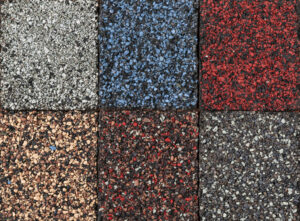What Are the 3 Types of Asphalt?
Types of Asphalt
There are three main types of asphalt. Each type offers different performance characteristics. These include workability, flexibility and durability. It is important to choose the right one for your needs.
The most common type of Asphalt is hot mix. This is the ideal material for roadways, driveways and surfacing. It has great resistance to rutting and friction, and is durable under all traffic conditions. Depending on your budget, you can choose from coarse-graded, fine-graded or dense-graded mixes.

If you have a busy road, you will need an asphalt mixture that will hold up under heavy traffic. It can also help prevent water from running away from the surface of the road. A high quality mix will keep tire noise to a minimum and will reduce reflective cracking. Lastly, you can also find porous asphalt, which can filter runoff and help in water management.
What Are the 3 Types of Asphalt?
Another common form of asphalt is cold mix. This is a type of pavement that is delivered to the job site. When laid, it is very durable and will withstand wind and flooding. In addition, it is designed to be flexible. But, it is more expensive than other types. However, it is suitable for patching. Ideally, cold mix should be replaced with warm mix asphalt when weather permits.
High-performance asphalt is a type of mix that is made from fibers and a modified asphalt binder. Because it has a higher asphalt content, it is more durable and has better rutting resistance. You will pay a bit more for this kind of asphalt, but you will get more bang for your buck.
For the most part, concrete is an affordable alternative to asphalt. However, this is not the case for all applications. Concrete is prone to chipping and scratching, and can also reflect sunlight off the surface. Also, concrete is a lot harder to repair than asphalt.
Another popular choice is the stone-matrix asphalt. Stone matrix asphalt is more expensive than other varieties, but it offers greater resistance to rutting and other problems. The void spaces in this asphalt are larger than conventional ones, which makes it ideal for areas where stormwater runoff is a concern.
Mastic asphalt, on the other hand, is created by mixing asphalt with rubber. It can be formed into any shape and can be used for paving. Due to its high concentration of bitumen, mastic asphalt is useful in sealing and repairing cracks. Nonetheless, mastic asphalt is slippery when not properly laid.
Asphalt is a great paving material, but it can be difficult to know which type is best for you. Whether you need hot mix, cold mix or porous asphalt, you can be sure to find a solution to your paving problems. Make sure you select the right mix for your specific needs and your budget. By choosing a high-quality product, you can reduce reflective cracking and improve your home’s curb appeal.
Finally, if you are considering the use of UPM, you need to understand how it works. UPM is a cold-mixed asphalt, which means that it is not heated during production. UPM is used to fix wet or dry holes, or to fix problems such as potholes or other asphalt issues.